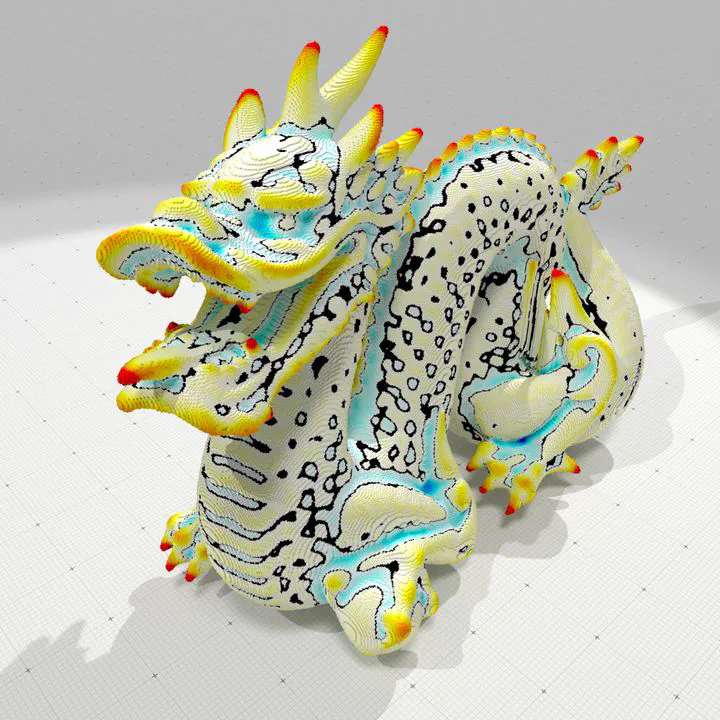Corrected Curvature Measures
Jan 1, 2022· ,,·
0 min read
,,·
0 min read
Jacques-Olivier Lachaud
Pascal Romon
Boris Thibert

Abstract
This paper proposes a new mathematical and computational tool for infering the geometry of shapes known only through approximations such as triangulated or digital surfaces. The main idea is to decouple the position of the shape boundary from its normal vector field. To do so, we extend a classical tool of geometric measure theory, the normal cycle, so that it takes as input not only a surface but also a normal vector field. We formalize it as a current in the oriented Grassmann bundle $\mathbb{R}^3 \times \mathbb{S}^2$
. By choosing adequate differential forms, we define geometric measures like area, mean and Gaussian curvatures. We then show the stability of these measures when both position and normal input data are approximations of the underlying continuous shape. As a byproduct, our tool is able to correctly estimate curvatures over polyhedral approximations of shapes with explicit bounds, even when their natural normal are not correct, as long as an external convergent normal vector field is provided. Finally, the accuracy, convergence and stability under noise perturbation is evaluated experimentally onto digital surfaces.
Type
Publication
Discret. Comput. Geom., 68(2): 477–524, 2022
Geometric Measure Theory
Curvature Estimation
Curvature Measures
Digital Geometry
Digital Surface
Polgonal Mesh
Discrete Geometric Estimator
3D
Multigrid Convergence
Authors
Professor of Computer Science
My research interests include digital geometry, geometry processing, image analysis, variational models and discrete calculus.